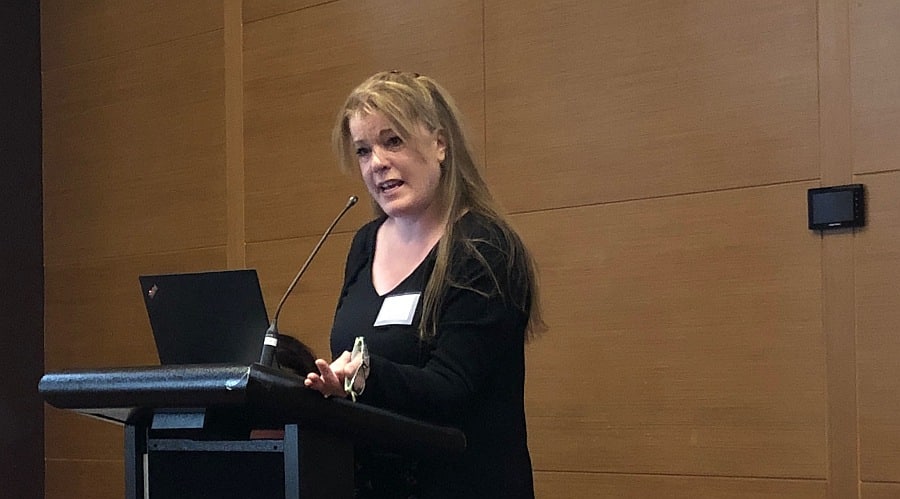What Matters Most in grief and bereavement support in palliative care?
During National Palliative Care Week Dr Pippa Blackburn spoke about the burgeoning body of research into grief and bereavement that has developed over the last 3 decades. She noted however that the act of analysis had created expectations around grieving styles – itinerant, instrumental, dissonant, penitent and others – which are not always helpful for the person experiencing grief:
“There are so many (observed expressions of grief) and yet we tell people to grieve in their own way, we say that there is no right or wrong way, ‘just be yourself’. But then we say ‘but not like that because it doesn’t fit within our parameters’. So people get these messages that they are not grieving appropriately and what happens is we silence the grieving through a lot of the discourse that we have developed.”
She studied the factors (social, environment) that influence the person’s desire to engage in and utilise supportive and palliative care:
“My question was can we do things better around bereavement? It launched me into looking at research, to ask ‘what are the bereaved receptive to?’”
So Pippa commenced a study across a rural and regional catchment in Western Australia to explore the experiences of bereaved individuals 7-12 months after death. She also talked with health professionals and aboriginal health professionals about providing bereavement support for their communities.
While completing her studies into receptivity she also noticed that respondents were often talking about displacement, disruption and a sense of dispersion from community. She likened this to the experience of people living as diaspora, metaphorically scattered from their original homelands:
“Diaspora really talks about how people negotiate two worlds, and this was essentially what the bereaved were doing, they were negotiating the world that was with the world that they were going to face in the future. As one respondent said, ‘I found myself in foreign territory with no guidelines for me, it was very frightening’.”
Since then Pippa has spent time understanding the features of this ‘bereavement diaspora’, noting that many factors affect bereavement – age, gender, health, culture, socioeconomic status – and attempting to draw these experiences into a better understanding of bereavement. In particular she noted that a gap in the literature around the impact of socioeconomic status on bereavement experience and what the bereaved have to deal with in terms of end of life administration such as estate matters.
The concept of bereavement diaspora enables us to understand the bereaved person’s experience within the bigger story of their loss. This framework had several elements: the experience of a violent disruption to their psyche that comes with profound loss (existential diaspora); challenges with coping with day to day tasks and activities but also with the tasks associated with estate management; language, noting the challenges for bereaved people have in interacting with agencies over estate management, but also that often the language that we have created in grief and bereavement doesn’t resonate with the bereaved; and relationships that people negotiate in their bereavement.
“Probably the best model to understand bereavement is the dual process model. It shows that people engage in grief work…but at the same time they know that they have to get on with the experience of living. They are constantly moving between the two states.”
Pippa went on to speak about receptivity to end of life care services, and psycho-social risks associated with prolonged grief, suicidal ideation, relationships and maintaining day to day activities like work that may not typically be taken into account in a bereavement program.
She advocated for a change in the way we offer and structure bereavement services, in particular that bereaved people valued a one-stop-shop for support. She also advocated for systems navigators to help people access appropriate support.
She also encouraged clinicians to value shared trauma experiences in health care, to understand that a person’s shared experience of bereavement with clinicians is inherently beneficial to the therapeutic relationship.
“At the end of the day if we keep approaching bereavement the way that we always have then nothing is going to change.”
Dr Pippa Blackburn has a background in Social Work and Nursing. She is with the Palliative Care Outcomes Collaboration at the University of Wollongong and was speaking at the Palliative Care NSW Professional Education Day forum at Rooty Hill on the 25th of May 2018.
Pippa will also be speaking at the Palliative Care NSW forum Being Present: Spirituality, disruption and reflection in Palliative Care at Warilla on the 19th of June.
Pic: Dr Pippa Blackburn


